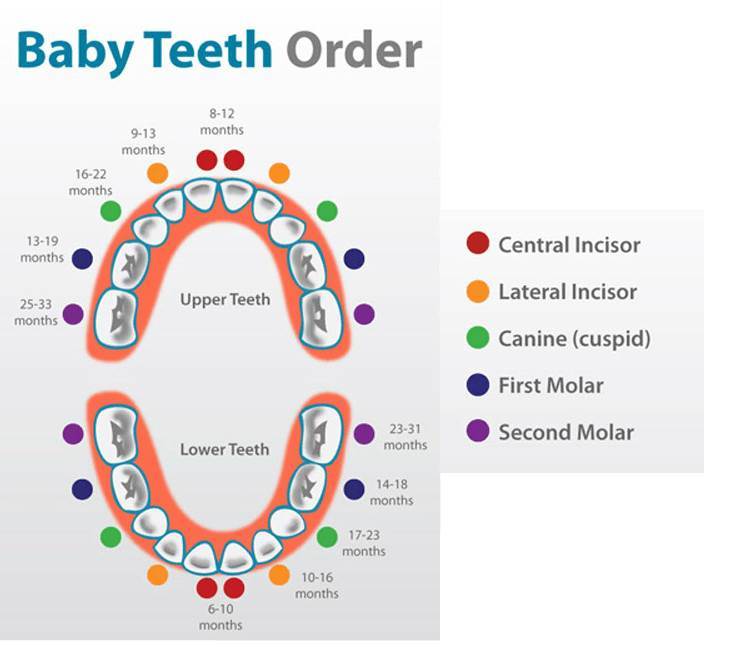Your Cart is Empty
Code "10OFF"Saves 10%!
We Ship Daily by 2pm + FREE US Shipping > $49 !
Code "10OFF"Saves 10%!
We Ship Daily by 2pm + FREE US Shipping > $49 !
Code "10OFF"Saves 10%!
We Ship Daily by 2pm + FREE US Shipping > $49 !
Code "10OFF"Saves 10%!
We Ship Daily by 2pm + FREE US Shipping > $49 !

December 01, 2017 3 min read
For a mother, one of the most beautiful things is to feel their child grow in their belly as well as see them grow and learn in front of their eyes when they are born. Mothers want to provide for their kids and shield them negative stimuli when it is there. When our baby cries, we would like to know what the problem is, but it is easier said than done sometimes. The formation of teeth, for example, can be a tiresome and scary experience for parents as their child may become irritable, cranky and cry for long periods at a time. Since babies are not able to communicate they are in pain because of their new teeth most of the time, parents have to rely on signs and symptoms in order to identify the problem.

Although there are no definite signs of baby teething, there are some that commonly appear. If you notice your child has a runny nose, diarrhea, or fever, these symptoms are abnormal and you should contact your pediatrician. When your child is around 3-12 months old, monitor your child's gum and teeth. If you notice they are behaving differently than normal and you suspect it is due to tooth pain, you will want to look for one or more of the following:

Drugs of any type may have adverse side effects when taken by adults, and these effects are more intense for children and infants. Treatment options for kids are available, but there is the fear of overmedicating where the drug becomes toxic. For example, many of the topical agents for gum and tooth relief contain benzocaine, but research shows the use should be heavily moderated as it can affect oxygen levels in the body. Over-the-counter pain relievers such as ibuprofen and Tylenol are able to relieve the symptoms when used as directed, but they still not able to treat the problem itself other than taking care of the pain.
Baltic Essentials Amber can relieve tooth pain in babies naturally unlike many of the medications used today. While some think the beads should be given to the baby to chew on when they are teething, this should not be done. The Necklacesand Bracelets available work in an effective manner when you place it around the baby's neck or wrist. The beads are made of succinic acid, the active ingredient, that have anti-inflammatory and analgesic properties that travel to the blood when it is worn. Swelling and tooth pain are both addressed and your child is able to grow their teeth in without feeling the discomfort. You will notice the positive effects babies not long after they wear it, and the beads will remain potent for months. As a warning, the necklace should be taken off when your baby is sleeping in order to avoid choking. It is also advised not to wrap them around their leg as an ankle at night unsupervised.
Use coupon: TEETHING20 to save 20% Today!
For babies and young children, we offer a wide range of products that contain all natural Baltic Amber, Hazelwood, and other elements...
There are a variety of intended benefits, such as relief for inflammation, gut pain, and even emotional ailments. Check out our selection below!
All Products Asthma & Breathing Separation Anxiety Anger & Stress Stress, Anxiety, ADHD Emotional Support
For babies and young children, we offer a wide range of products that contain all natural Baltic Amber, Hazelwood, and other elements...
There are a variety of intended benefits, such as relief for inflammation, gut pain, and even emotional ailments. Check out our selection below!
All Products Asthma & Breathing Separation Anxiety Anger & Stress Stress, Anxiety, ADHD Emotional Support
For Older Children and Pre-Teens, we offer a wide range of products that contain all natural Baltic Amber, Hazelwood, and other elements...
There are a variety of intended benefits, such as relief for inflammation, gut pain, and even emotional ailments. View our selection of Pre-Teens inventory below!
All Products Asthma & Breathing Sadness & Depression Anger & Stress Stress, Anxiety, ADHD Emotional Support
We offer a wide range of products that contain all natural Baltic Amber, Hazelwood, and other elements...
There are a variety of intended benefits, such as relief for inflammation, gut pain, and even emotional ailments. View our selection of inventory below!
All Products Asthma & Breathing Sadness & Depression Anger & Stress Stress, Anxiety, ADHD Emotional Support